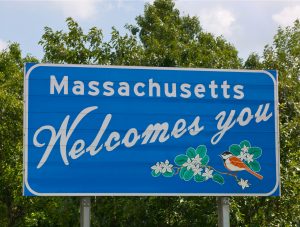The Massachusetts Supreme Judicial Court recently held that software vendors have a statutory right to apportion tax on the sale of prewritten computer software purchased for use in multiple states and that they may do so through the Commonwealth’s general tax abatement process. The court’s decision in Oracle USA, Inc. v. Commissioner of Revenue, 487 Mass. 518 (2021) confirms that the ability to apportion tax on software is not contingent on strict compliance with the administrative procedures set forth in the Massachusetts Commissioner of Revenue’s apportionment regulation. The tax abatement process is an acceptable mechanism for taxpayers to seek tax apportionment with respect to software purchased for use in multiple jurisdictions. Continue Reading ›
Continue Reading ›
Articles Posted in Massachusetts
U.S. Solicitor General Recommends the Supreme Court Decline New Hampshire v. Massachusetts
On May 25, the U.S. Solicitor General filed its highly anticipated brief in New Hampshire v. Massachusetts  and recommended that the Court decline jurisdiction over the case. Although the ultimate decision is yet to be issued, the U.S. Supreme Court generally follows the Solicitor General’s recommendations after, as here, the Court requests the U.S. government’s input.
and recommended that the Court decline jurisdiction over the case. Although the ultimate decision is yet to be issued, the U.S. Supreme Court generally follows the Solicitor General’s recommendations after, as here, the Court requests the U.S. government’s input.
Massachusetts Supreme Judicial Court Upholds Massachusetts Sales Tax on Screen-Sharing Software Products
 The Massachusetts Supreme Judicial Court held that sales tax applied to subscription fees for three online Citrix products, “GoToMyPC,” “GoToAssist” and “GoToMeeting,” which allow users to remotely access other users’ computers. Citrix Systems, Inc. v. Comm’r of Revenue, No. SJC-12741 (Mass. Feb. 5, 2020). In so holding, the Court affirmed the Massachusetts Appellate Tax Board’s determination that Citrix made taxable sales of tangible personal property, rather than nontaxable sales of services.
The Massachusetts Supreme Judicial Court held that sales tax applied to subscription fees for three online Citrix products, “GoToMyPC,” “GoToAssist” and “GoToMeeting,” which allow users to remotely access other users’ computers. Citrix Systems, Inc. v. Comm’r of Revenue, No. SJC-12741 (Mass. Feb. 5, 2020). In so holding, the Court affirmed the Massachusetts Appellate Tax Board’s determination that Citrix made taxable sales of tangible personal property, rather than nontaxable sales of services.
The Evolution of Software as a Service Taxes Post-Wayfair
(This article originally was published by Law360 on May 17, 2019.)
In the last year, several state legislatures have enacted laws and several state courts have published decisions on whether software as a service, or SaaS, is subject to sales and use tax. These developments impact many SaaS providers, especially due to the expanded nexus provisions that many states are enacting after the United States Supreme Court’s South Dakota v. Wayfair Inc. decision.1 The states have gone in different directions—Indiana enacted legislation exempting SaaS, while Iowa and Rhode Island began taxing SaaS. The Massachusetts Appellate Tax Board and the Pennsylvania Board of Finance and Revenue have both issued decisions clarifying the taxability of SaaS offerings.
 SeeSALT Blog
SeeSALT Blog

